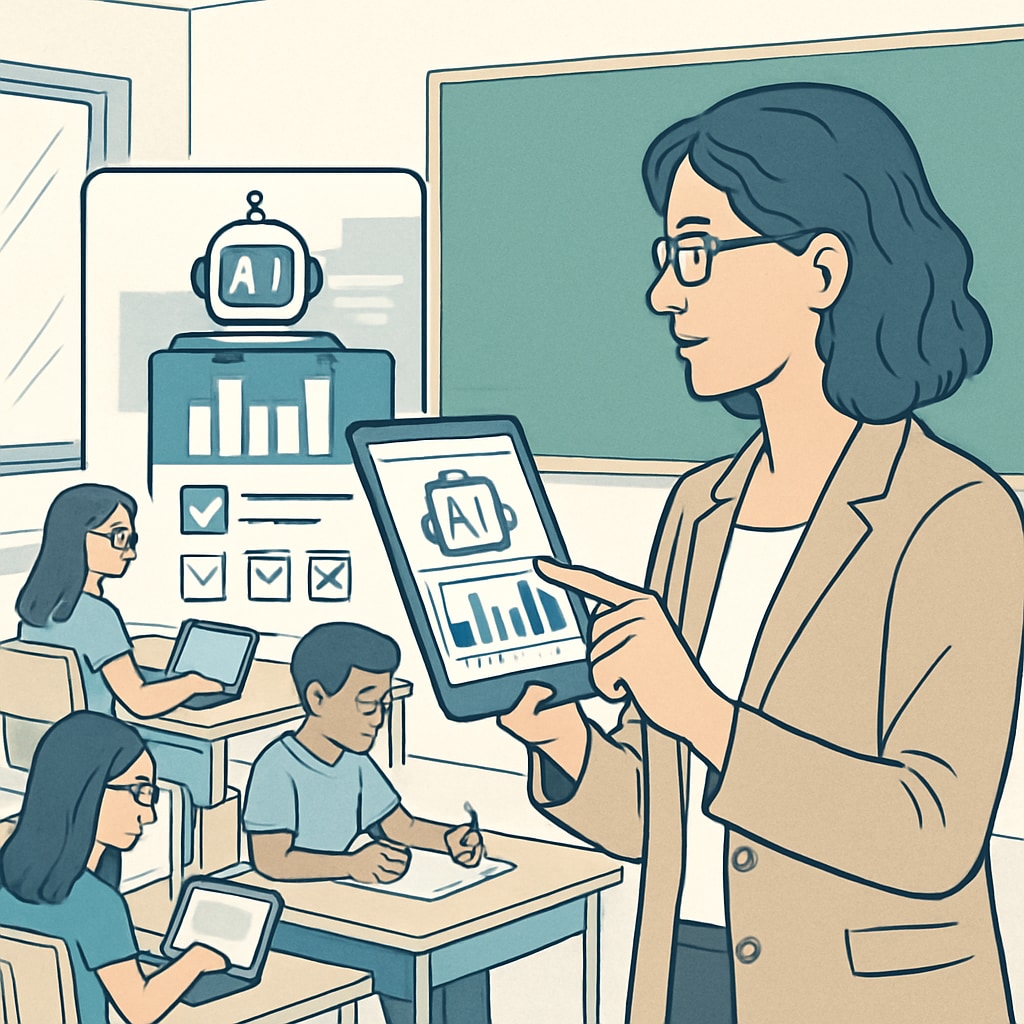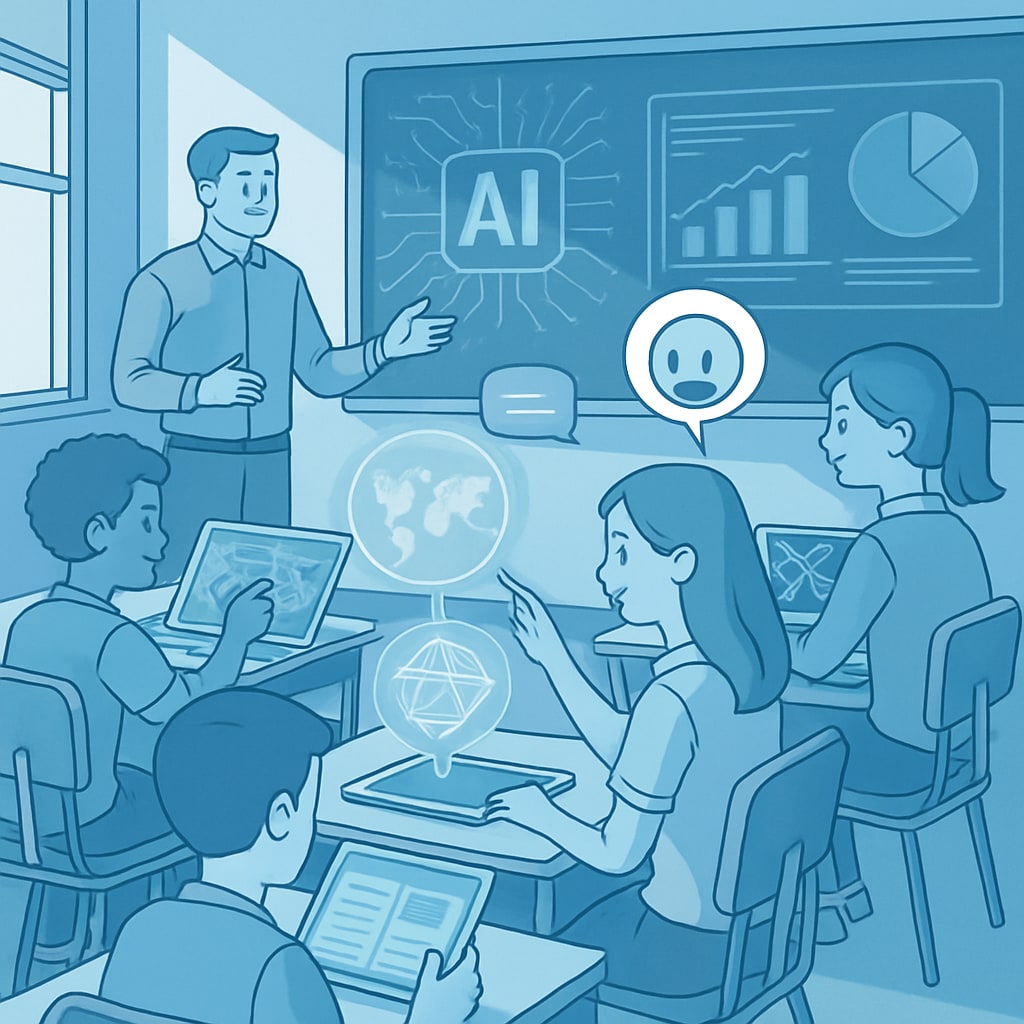Artificial intelligence (AI) is rapidly transforming numerous aspects of human life, including the way we approach education and talent selection. The traditional reliance on competitive exams to assess students’ abilities is now facing unprecedented challenges in the AI era. As society increasingly values innovation and adaptability, it is vital for K12 education systems to rethink and redesign their evaluation methods. How can we reform these systems to prepare students for a future driven by technological advancements?

Rethinking the Limitations of Traditional Competitive Exams
Competitive exams have long been the cornerstone of talent selection in many education systems. However, their focus on rote memorization and standardized testing often fails to evaluate critical skills such as problem-solving, creativity, and adaptability. The emergence of AI only amplifies these limitations. For example, AI tools like ChatGPT now allow students to access instant solutions to complex problems, undermining the validity of knowledge-based assessments.
In addition, the traditional exam model often overlooks the importance of soft skills like communication, teamwork, and emotional intelligence, which are increasingly valued in the modern workforce. The rigidity of such systems leaves little room for personalized learning paths, a critical need in an AI-driven world where individual strengths must be nurtured.
AI as a Catalyst for Educational Reform
Rather than seeing AI as a threat, educators and policymakers can leverage it as a powerful tool for reform. AI-powered assessment systems can provide real-time feedback on students’ performance, enabling a shift from one-size-fits-all exams to more personalized and continuous evaluation methods. For instance:
- Dynamic Assessments: AI algorithms can adapt questions in real-time based on a student’s strengths and weaknesses, offering a more tailored evaluation experience.
- Skill-Based Evaluations: By analyzing patterns in student responses, AI can assess not only academic knowledge but also higher-order thinking skills.
- Minimized Bias: Automated grading systems can reduce human biases, ensuring more equitable outcomes for students from diverse backgrounds.
By integrating AI into the evaluation process, K12 education systems can move beyond the confines of traditional exams and cultivate a broader range of talents.

Cultivating Future-Ready Skills for Talent Selection
The future workforce will demand skills that extend far beyond academic knowledge. To prepare students for this reality, education systems must prioritize the development of competencies such as:
- Critical Thinking: Encouraging students to analyze, evaluate, and synthesize information in innovative ways.
- Collaboration: Promoting teamwork and the ability to work effectively with diverse groups.
- Digital Literacy: Ensuring students are proficient in using technology responsibly and creatively.
- Adaptability: Teaching students to embrace change and thrive in uncertain environments.
AI can play a pivotal role in fostering these skills. For example, gamified learning platforms powered by AI can offer interactive scenarios that require students to solve problems collaboratively. Similarly, AI-driven simulations can expose students to real-world challenges, helping them develop both technical and interpersonal skills.
Challenges and Ethical Considerations
While the integration of AI in education presents numerous opportunities, it also raises important ethical questions. Data privacy is a key concern, as AI systems often require access to sensitive student information. Ensuring that this data is used responsibly and securely is essential. Furthermore, the digital divide must be addressed to ensure that AI-based reforms do not exacerbate existing inequalities in access to educational resources.
Educators and policymakers must work collaboratively to establish clear guidelines for the ethical use of AI in education. Transparency, inclusivity, and fairness should be the guiding principles of any reform.
In conclusion, the rise of artificial intelligence necessitates a fundamental rethinking of traditional competitive exams and talent selection methods. By embracing AI-driven reforms, K12 education systems can better prepare students for the demands of the future, fostering a generation of innovative, adaptable, and ethically conscious individuals.
As we navigate this transformative era, the question remains: How can we ensure that education systems worldwide are equipped to meet the challenges and opportunities presented by AI? The answer lies in collaboration, innovation, and a shared commitment to creating a brighter future for the next generation.
Readability guidance: This article is structured with clear headings and concise paragraphs. Lists and transitional phrases have been used to improve flow and readability. Passive voice and long sentences have been minimized to enhance clarity.


